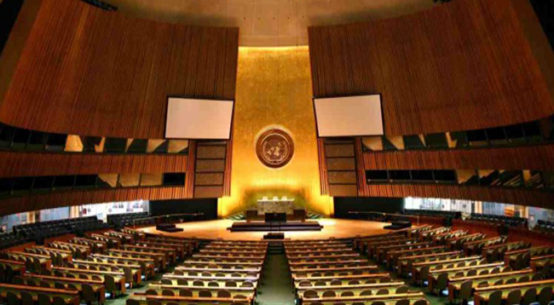
Around the world countries are taking powerful steps to protect people’s rights, dignity, and health. Dominica and Namibia became the most recent to decriminalize same-sex relations. South Africa made strides towards decriminalizing sex work.
Japan’s Supreme Court ruled that compulsory sterilization for transgender people is unconstitutional, and for the first time the essential role of harm reduction was recognized in a UN resolution on narcotic drugs.
These achievements all contribute to the landmark 10-10-10 HIV targets, adopted by countries in the 2021 Political Declaration on HIV and AIDS, to reduce new infections and tackle criminalization, stigma and discrimination and gender inequality, issues especially critical for people living with HIV and key populations, including sex workers, men who have sex with men, transgender people, people who inject drugs, and the incarcerated.
Yet, for every heartening step toward justice, setbacks and barriers remain. In the last three months alone, Georgia’s parliament moved to curb LGBTIQ+ rights, Iraq criminalized same-sex relationships, countries in Eastern Europe and Central Asia have signed into law sweeping restrictions on civil society and the Malawi courts upheld a ban on same-sex conduct.
Every action we take now will make a difference
With just one year left to meet these targets, we are still off track. What’s more, the global pushback on human rights and gender equality, constraints on civil society, and the acute funding gap for HIV prevention and addressing structural and social barriers, threaten continued progress on AIDS.
This is the time to re-double our efforts. Every single action taken now to meet the 10-10-10 targets will improve the lives and wellbeing of those living with HIV and other key populations well into the future. It will protect the health and development gains of the AIDS response.
If we are to realistically end AIDS by 2030, we must, in lockstep with recent scientific advances, urgently accelerate efforts by shaping enabling policy environments.
Together with partners, UNDP will use its platform at the AIDS 2024 conference, along with a new #Triple10Targets campaign, to call for urgent action to accelerate progress in scaling national key population-led strategies, promoting allyship and inclusive institutions and unlocking sustainable financing.
Community leadership
Key populations and their sexual partners remain at the highest risk for HIV, accounting for 55 percent of all new HIV infections in 2022 and 80 percent of new HIV infections outside of sub-Saharan Africa, a trend which persists. The heightened risk they face is, in part a result of stigma, discrimination and criminalization.
The heart of the HIV response was built by community advocates, past and present, on its inextricable links to human rights. People living with HIV and other key populations are still leading the charge, based on their experiences and knowledge of what their communities need to tackle discriminatory laws and HIV-related criminalization, which deny them services and violate their human rights.
The recent overturning of a colonial-era sodomy law in Namibia, brought to court by Friedel Dausab, a gay Namibian man, showcases such courageous leadership.
But those most affected by and at risk of discrimination, exclusion and violence must not be left to tackle this alone. Their efforts are that much more effective and powerful when met with global solidarity and inclusive institutions, backed by collaboration and investment.
UNDP continues to promote and prioritize the meaningful engagement of people living with HIV and other key populations in decision-making spaces and policy design, through the work done by SCALE, #WeBelong Africa and Being LGBTI in the Caribbean and its HIV and health work more broadly.
The role for allies
Expanding and deepening networks of allies, in particular fostering links between key populations and scientists, health workers, legal professionals, policymakers, faith leaders, media and the private sector, will be vital to building a sustainable HIV response. Finding common ground with broader social movements is a critical element to policy change and reform.
One such UNDP-led initiative brings together members from the judiciary in regional fora in Africa, Eastern Europe and Central Asia and Latin America and the Caribbean to deepen knowledge and understanding of law, rights and HIV, and the impact of punitive laws and policies.
This work has contributed to informing judicial decisions upholding the rights of marginalized communities in Botswana, Kenya, Namibia, Mauritius and Tajikistan and beyond.
Hundreds of parliamentarians worldwide can now support LGBTIQ+ inclusion through the Handbook for Parliamentarians on Advancing the Human Rights and Inclusion of LGBTI People. These demonstrate how allies can use their power and privilege to shape inclusive polices and institutions that support the dignity and human rights of people living with and affected by HIV.
Unlocking innovative financing
Progress will not be possible without addressing the funding gap. Yet investment in HIV is declining, and funding for primary prevention programmes in low- and middle-income countries has dropped, with a sobering 80 percent gap in 2023.
Countries must boost sustainable investments in the HIV response. This includes both for services and for addressing the structural barriers for these services, particularly in low- and middle-income countries.
Through SCALE, UNDP funds 44 key population-led organizations in 21 countries, boosting capacities to share good practice and remove the structural barriers which impede their access to services and violate their human rights. In the Philippines, Cebu United Rainbow LGBT Sector (CURLS) is working towards comprehensive key population protection ordinances, contributing to the recently-signed Implementing Rules and Regulations of Mandaue City’s LGBTIQ+ Anti-Discrimination Ordinance. These will encourage LGBTIQ+ communities to more proactively engage with services.
Strong national leadership and inclusive institutions are also vital to scaling up funding. Last year UNDP worked with 51 countries to expand innovative financing for HIV and health, utilizing strategies such as investment cases, social contracting, inclusive social protection, health taxes and co-financing.
Achieving health for all
As polycrisis threatens the hard-won gains of the HIV response and the clock winds down on the 10-10-10 targets, we must remain steadfast and focused on the task; scaling national key population-led strategies, promoting allyship and inclusive institutions, and unlocking sustainable funding. The stakes couldn’t be higher.
Achieving the 10-10-10 targets will not only be a victory against this preventable disease, but also against the stigma and discrimination faced by those left furthest behind, ultimately benefiting the health of people everywhere.
There is no path to ending AIDS as a public health threat without the triple ten targets.
Mandeep Dhaliwal is Director of the HIV and Health Group, UNDP; Kevin Osborne is Manager, SCALE Initiative, HIV and Health Group, UNDP.


